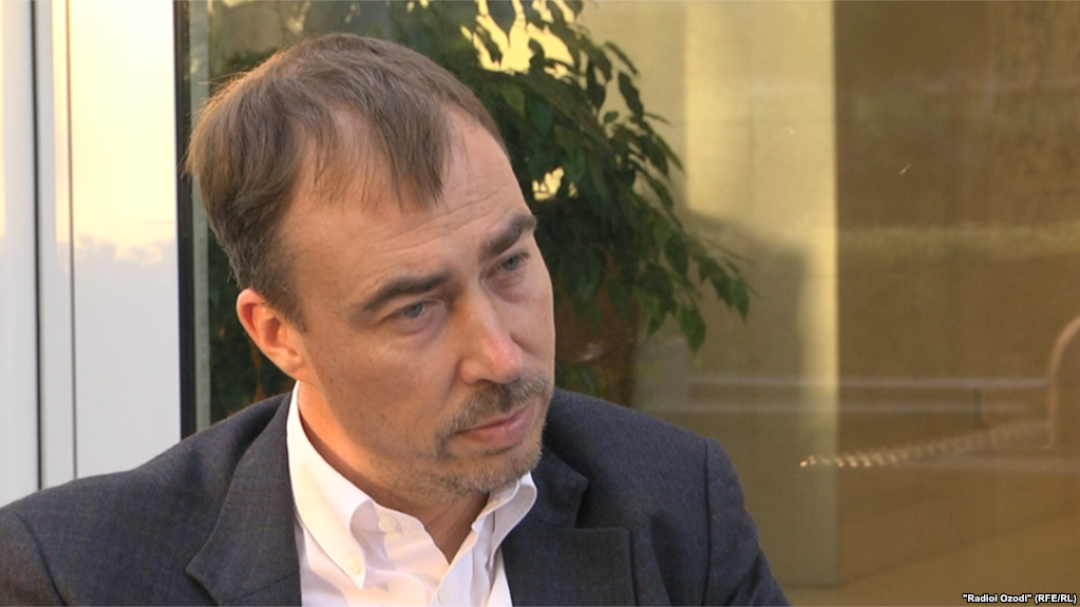
Toivo Klaar on his meeting with Aliyev and EU’s role in the South Caucasus after the Second Nagorno-Karabakh war

On 11 March, the EU Special Representative for South Caucasus Toivo Klaar held an exclusive interview with the Azerbaijani news agency Turan, where he spoke about his meeting with Azerbaijan’s President Ilham Aliyev (Caucasus Watch reported), as well as about the EU projects in Nagorno-Karabakh after the war.
“The European Union has extensive ties with Azerbaijan, with its government and is ready for further cooperation to resolve ‘specific’ issues and problems that arose in the post-war period. These questions are at the stage of discussion, on some issues we expect a response from the Azerbaijani authorities,” Klaar said.
When asked when any concrete steps can be expected, Klaar said that the EU has already started, having allocated 6.9 million euros to international organisations for humanitarian programs in the war-affected areas. In particular, the Red Cross received these funds to support people affected in the conflict zone. As for the future, the EU leadership and the Azerbaijani Ministry of Foreign Affairs are negotiating the allocation of additional funds in the coming months for other areas.
In response to the question if any specific proposals were made from Baku to the EU, Klaar responded by saying that for several years the European Union, together with the World Bank, has been implementing the “Peace building assessment” program, which implies solving the needs in the post-war period. Of special emphasis are the transport projects, where Klaar confirmed that it was a topic of discussion between him and the Azerbaijani president. “The European Union is very interested in supporting projects for the integration of the region. It is important for us to understand how we could participate or be useful in such processes. In particular, it can be transboundary water supply projects between Armenia and Azerbaijan. We are also interested in supporting and participating in transport projects and will discuss this with the Deputy Prime Minister (Shahin Mustafayev) and Foreign Minister of Azerbaijan (Jeyhun Bayramov),” he stated.
Klaar also commented on the statements that the restoration of the railway from Azerbaijan to Nakhchivan was not beneficial to Armenia by emphasising that new transport routes and connections were good for the region. “The transport routes should be designed with respect for the sovereignty of each country. In any case, this is a positive step because roads are opening, people are free to move around, the economy is developing.” “It also helps to improve mutual understanding, develop contacts between people,” he added.
The EU diplomat also spoke on the role of civil society in the restoration of relations between Armenia and Azerbaijan. “We have been working in this direction for many years, in establishing such ties. The war interrupted our work, but I think in the coming months and years we will resume activities to build bridges between the societies of Armenia and Azerbaijan, between civil societies and ordinary people. I think, with the support of the Azerbaijani authorities and taking into account the experience of the EU, much can be achieved,” he stated. Klaaar also stressed that he was "very inspired" by Aliyev’s position in that regard, saying that he got the impression that the Azerbaijani authorities want the establishment of civil society dialogue with Armenia.
Finally, Klaar also spoke about what the EU could do to resolve the Armenian-Azerbaijani conflict. “In Yerevan, Baku and Tbilisi, where I also discussed this, I heard the same thing - the wish that the European Union would help in normalising relations and overcoming the legacy of conflicts in the region. We are here because this is the decision of our partners. We have extensive experience in solving problems and conflicts, establishing regional cooperation. All this is now needed here, so the European Union can do a lot and we hear proposals on this from all sides,” he said. “The more international involvement in the South Caucasus and economic support to the countries of the region, the better for these countries and for their neighbours. We want peace and prosperity in the Caucasus, and this is beneficial for everyone,” Klaar concluded.
See Also


Armenia Records 5.9% GDP Growth in 2024, Missing 7% Goal

Yerevan Balances Strategic Ties with Both US and Russia, Says Foreign Minister

FM Mirzoyan: Peace Deal with Azerbaijan Is Within Reach

Pashinyan and Erdogan Hold Call, Reaffirm Commitment to Ongoing Dialogue

